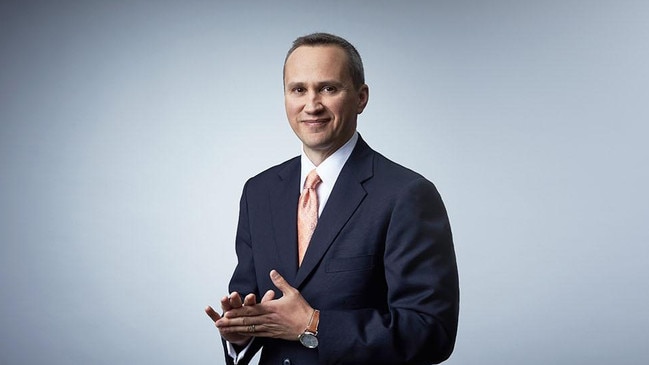Time to stop the dividends and start investing, says MFS’ Robert Almeida
The coronavirus threat might finally prompt do-nothing companies to kick the dividend habit and start investing, equities guru Robert Almeida says.

One of the world’s top equity strategists says the coronavirus epidemic could be the “spark that lights the fire” for a correction in late-cycle global sharemarkets full of companies that had underinvested in their businesses and returned capital to shareholders for far too long.
Robert Almeida, Global Investment Strategist at MFS Investment Management, also said the role of active managers in the current volatile market was to avoid putting clients into businesses that has mis-allocated capital and whose business models were being commoditised by technology.
“This (coronavirus) really isn’t the catalyst or source of market performance. It might be the spark that lights the fire. You have an overvalued financial market landscape with deteriorating cashflow you are getting in return,’’ he told the Active Advantage 2020 conference in Melbourne on Wednesday.
Mr Almeida said before this week’s market sell-off, equity valuations had got to excessive levels. They were now returning “to where they should be”, he said.
“There is an unsustainability to this,’’ he said of the market’s bull run over the past decade.
“The dynamics that led to this didn’t come from true business operations. There has been an underinvestment in business operations and an over investment in return of capital to shareholders.”
He noted there had been 800 interest rate cuts this market cycle and $US12 trillion dollars worth of quantitative easing by central banks, which had artificially inflated liquidity and bolstered balance sheets.
“All they have is a hammer and they think every problem is a nail,’’ he said.
Supply chain financing
He also questioned the controversial growing use of supply chain financing, which allows companies to delay paying bills, in turn lowering reported debt and inflating cash balances.
Australian blue chip firms such as Rio Tinto and Telstra have recently abandoned the practice amid allegations they were using it to force small suppliers to accept unfavourable payment terms.
“What we are seeing today is companies in companies, utilities, emerging markets, healthcare, they are all doing it,’’ he said, noting some were extending payment terms to suppliers from 45 to 450 days.
“What happens when that capital runs dry? What does that capital metric look like? Is Wall Street prepared for that? I would argue no,’’ he said.
Mr Almeida also said too many companies were now reporting differences between statutory results subject to GAAP accounting and underlying profit results and the value of active managers was in investigating these “intangibles” to avoid “terminally value challenged businesses.”
“It is really hard to analyse that something doesn’t smell right . . . The value of active management is this intangible,’’ he said, noting this was “not something a robot can do”.
Mr Almeida was speaking after MFS, the Los Angeles-based Capital Group and the Edinburgh-based Baillie Gifford this week announced the formation of a landmark Australian alliance known as the Active Advantage 2020 collaboration.
It aims to bring greater balance, research and perspective to active managers supporting Australia’s $2.9 trillion superannuation savings pool.
“It is our job as active managers to avoid making mistakes. It is not the things that we did right, it is the magnitude of the things we did wrong,’’ Mr Almeida told the conference.
“If we are going to protect investors capital and produce alpha, we need to understand where the mistakes were made and ensure our clients money is not allocated to that.”







To join the conversation, please log in. Don't have an account? Register
Join the conversation, you are commenting as Logout